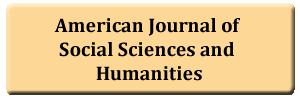An examination of factors related to self-compassion and academic resilience among Taiwanese university students
DOI:
https://doi.org/10.55284/ajel.v10i2.1482Keywords:
Academic resilience, perceived competence, perfectionism, self-compassion, social support.Abstract
This study aimed to investigate the relationships between academic resilience and several potential predictors. Given that self-compassion may serve as a fundamental precursor to resilience, the present study was also intended to explore factors that contribute to the development of each component of self-compassion. Five hundred and four Taiwanese undergraduate students completed a self-reported survey assessing parental influences, self-compassion, social support, perceived competence, perfectionistic tendencies, and academic resilience. Hierarchical regression analyses were performed to determine the significant predictors of the components of self-compassion as well as academic resilience. The findings suggested that both social support and perceived competence were positively related to all components of self-compassion. In contrast, parental criticism and perfectionistic concerns were negatively linked to each component. Notably, perfectionistic strivings significantly predicted mindfulness but not other aspects of self-compassion. With regard to academic resilience, students’ self-compassion, perceived competence, and perfectionistic strivings were found to positively predict their academic resilience, whereas parental criticism and perfectionistic concerns emerged as negative predictors. Collectively, these factors accounted for 61% of the variance in resilience. The findings highlight the critical role of self-compassion and perceived competence in fostering resilience. Implications for practice are discussed.



